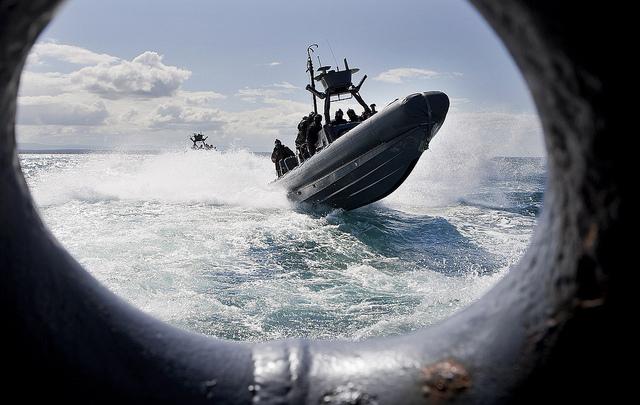In a recent op-ed, I drew attention to the Sea Shepherd’s recent encounter with the toothfish vessel, the Thunder.
Economic losses from illegal, unreported and unregulated (IUU) fishing are estimated to be between US$10 billion and US$23.5 billion annually.
As the European Commission points out, IUU fishing depletes fish stocks, destroys marine habitats, distorts competition, unfairly disadvantages honest fishers, and weakens coastal communities, particularly in developing countries
The Thunder, an IUU vessel, fishing for toothfish was recently followed for one hundred and ten days by a Sea Shepherd vessel.
The events began in the Southern Ocean off the Antarctic continent, and ended in West Africa half way around the world when the Thunder was apparently sunk by its captain in the waters off São Tomé and he, and his crew, were rescued by their pursuers. The long and determined following of the Thunder—not a legal ‘hot pursuit’ as Sea Shepherd lacked legal authority and no coastal waters were involved at its inception—has underscored the need for international cooperative action against IUU fishing. The Thunder regularly changed states of registry in an attempt to avoid past prosecution attempts. How many of those flag states actually issued fishing licenses as well as providing a register and flag for the boat is unknown. But there’s a strong suspicion that few, if any, actually licensed the Thunder to fish in the Southern Ocean high seas region.
Nations are largely hamstrung by international law in relation to high seas fishing because a boat can be flagged by a non-member of a regional fishery management organisation. That vessel can then fish without conservation measures applying to the boat (provided the vessel’s owner and operator is from that flag state, and not actually from a member nation of a fishing body using that flag state as a means to avoid the rules.) This is further complicated because many of these ships hide their true ownership.
If the owner of the Thunder is a company or person from a nation belonging to the Commission for the Conservation of Antarctic Marine Living Resources, then that company and/or person may be prosecuted for illegal fishing. A recent advisory opinion from the International Tribunal for the Law of the Sea on IUU fishing may help states affected by such activities exert greater pressure on flag states—particularly flag states of convenience—that don’t live up to their responsibilities under the UN Law of the Sea Convention, including ‘due diligence’ standards.
President Barack Obama’s Taskforce on Combating IUU Fishing and Seafood Fraud, led by the Departments of State and Commerce, is helping to promote the Port State Measures Agreement: the first ever agreement to set minimum standards for countries to prevent IUU seafood products from entering their ports.
There’s real progress being made by the island countries of the Central Western Pacific, and regional fisheries management organisations, in reducing IUU fishing in their region. The main problem isn’t so much illegal catch—it’s the misreporting or non-reporting of catch.
But there’s growing IUU fishing problems in West Africa, the Indian Ocean, Southeast Asian waters and the South China Sea, especially with unregulated fishing. Indonesia and the Philippines are now taking independent steps in the right direction, with both countries displaying a much tougher stance against IUU fishing.
Australia cooperates with ten countries across Southeast Asia against IUU fishing under the Regional Plan of Action on Responsible Fishing Practices including Combatting IUU Fishing (PDF).
I believe Australia should strengthen its efforts in regional capacity building to improve technical knowledge, promote partnerships between regional countries and facilitate information exchange to tackle IUU fishing at its source. Port state control measures in particular will provide an effective way of cutting off vessel resupply and market opportunities to IUU vessels. Generally speaking, unregulated fishing vessels have flag states that don’t have the capacity or interest to enforce laws pertaining to sustainable high seas fishing. The challenge will be to ensure flag states are responsible for controlling unregulated fishing by making it a requirement that they either join a relevant regional fishing body and apply those rules to their vessels, or only license boats outside managed areas.
The Thunder case reminds us that IUU fishing is yet another threat that bedevils our maritime region. But it won’t be the actions of vigilante groups at sea that will make the real difference.
Rather, as Julia Jabour and Indi Hodgson-Johnston from the University of Tasmania’s Institute of Marine and Antarctic Studies have pointed out, what’s required to combat this global problem is:
‘improving practice in law and evidence collection, developing efficient and effective monitoring and surveillance technologies, building capacity of flag and port states in regions that such fishing operators exploit… improvements in the practice of international law, coupled with improved technology and awareness, ultimately will close the net around the insidious illegal fishing industry’.
